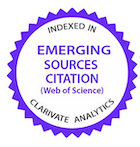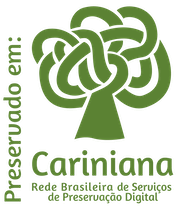Substituição de fonte de amido por fibra solúvel em detergente neutro na dieta de vacas
DOI:
https://doi.org/10.1590/1089-6891v17i217586Palavras-chave:
ingestão de nutrientes, milho grão, polpa cítrica, vacas leiteirasResumo
Conduziu-se este trabalho com o objetivo de avaliar os efeitos da substituição do milho por polpa cítrica sobre o desempenho de vacas leiteiras. Utilizaram-se nove vacas (três canuladas no rúmen) da raça Holandesa, pluríparas, com 80 ± 24 dias de lactação e produção média diária de 20 ± 0,58 kg de leite. Os animais foram confinados em tie stall, com cocho e bebedouro individuais. Utilizou-se um quadrado latino 3 x 3. Os períodos experimentais tiveram duração de 21 dias, sendo 14 de adaptação e sete de coleta. Os tratamentos foram constituídos de 100% milho grão (MG), 50% milho grão e 50% polpa cítrica (MP) e 100% polpa cítrica (PC). Não houve diferenças significativas na ingestão dos nutrientes (MS, MO, FDN, FDA, PB, amido) entre dietas. O tratamento com polpa cítrica produziu maior proporção de acetato em relação aos demais, bem como maior relação acetato/propionato. As médias de pH situaram-se entre 5,86 e 7,35. As médias de N-NH3 apresentaram maiores diferenças nos tempos 2 e 3 horas pós-alimentação. Não houve diferenças entre as dietas para produção total de leite corrigido para 4% de gordura, proteína, lactose, extrato seco total (EST) e nitrogênio uréico do leite (NUL).
Palavras-chave: ingestão de nutrientes; milho grão; polpa cítrica; vacas leiteiras.
Downloads
Publicado
Como Citar
Edição
Seção
Licença

Este trabalho está licenciado sob uma licença Creative Commons Attribution 4.0 International License.
Autores que publicam nesta revista concordam com os seguintes termos:
- Autores mantém os direitos autorais e concedem à revista o direito de primeira publicação, com o trabalho simultaneamente licenciado sob a Licença Creative Commons Attribution que permite o compartilhamento do trabalho com reconhecimento da autoria e publicação inicial nesta revista.
- Autores têm autorização para assumir contratos adicionais separadamente, para distribuição não-exclusiva da versão do trabalho publicada nesta revista (ex.: publicar em repositório institucional ou como capítulo de livro), com reconhecimento de autoria e publicação inicial nesta revista.
- Autores têm permissão e são estimulados a publicar e distribuir seu trabalho online (ex.: em repositórios institucionais ou na sua página pessoal) a qualquer ponto antes ou durante o processo editorial, já que isso pode gerar alterações produtivas, bem como aumentar o impacto e a citação do trabalho publicado (Veja O Efeito do Acesso Livre).






























